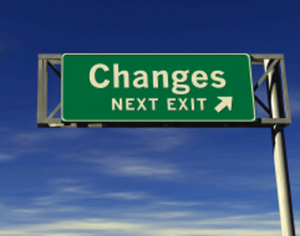Change the church?
 This week I participated in an intensive Grad class on strategic design and organizational change. Besides the delight of this being my last Masters-level course before I will receive my degree (yeah!), I thoroughly enjoyed this class. Our world is in a period of profound cultural transition, and churches need to be aware of how to thrive, and not just survive, during this time. This class confirmed something I have been noticing regarding how various churches are navigating this turbulent time.
This week I participated in an intensive Grad class on strategic design and organizational change. Besides the delight of this being my last Masters-level course before I will receive my degree (yeah!), I thoroughly enjoyed this class. Our world is in a period of profound cultural transition, and churches need to be aware of how to thrive, and not just survive, during this time. This class confirmed something I have been noticing regarding how various churches are navigating this turbulent time.
First, there are those who want to deny that culture-defining transition is even taking place. They want to assume that any change which may be happening now is simply continuous change: This is the kind of change that is largely predictable, expected, and can be managed well using the same systems currently employed to take care of past challenges. These folks believe any opposition their churches may face right now simply reflect the same kind of issues that have always been around. I think this response can be dangerous, and I’ve watched a number of churches that I am connected with, who have Godly leaders and wonderful congregations, encounter massive problems because they have not recognized the need to address a serious cultural shift.
Then, there are some in the emerging & missional church community who seem to be pushing the pendulum as far the other way as possible. They want wholesale change. In their opinions, church services, structures, and ministries should look radically different, our current model can’t work very much longer, and if leaders don’t get on the ball, the Church will not last another 10 years. I wish this was an exaggeration of what some are saying, but sadly it’s not. These writers and thinkers don’t feel that the current church has within it a model that is sufficient to address the discontinuous change that is totally disruptive and unanticipated—change that is taking our culture from a modern to a post-modern society.
Now, here is what I believe. Yes, our culture is facing massive and rapid transition, and the church needs to be ready to address it. Yes, some of our systems and structures may be unprepared to handle many of the challenges that are coming our way. But Jesus established the church, is building the church, and is completing the church to become His bride. God knew about the current paradigm shift that would hit Western culture well before any of us had any idea that it was coming. I don’t think we need to be worried about whether the church will continue.
We are, however, called to faithfully discern how to reach the people God loves and who live within our culture that is clearly shifting. As a pastor, I am not given the task to come up with a plan about how to accomplish this and somehow get everyone to follow my strategy. As a leader I am part of a community that God has already been working in the midst of; my job is to discern, together with that community, what God has been saying and doing, and then help focus us to get in on that. That might very well mean organizational change, but only when it lines up with the purposes of God that He has already been at work revealing in a situation.
Because of this culture shift, we get to be missionaries within our own society. That is exciting. This missionary mindset—this incarnational lifestyle—can happen through a small edgy new church that meets in a pub or in an older established mega-church that has a giant campus or campuses. As long as the local church is made up of the people of God who are doing God’s work in the world (both individually and organizationally), there is great freedom concerning the style or structure of that church.
